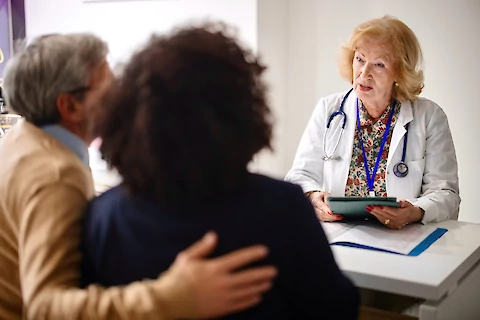
Data from the World Health Organization reveal that cervical cancer is the fourth most common cancer among women globally. According to the American Cancer Society, this serious health condition is more prevalent in senior women (65 years+), with more than 20% of cervical cancer cases found in this age group.
This blog post discusses what every senior woman needs to know about cervical cancer, including the potential factors that can increase their risks, recommendations for preventative monitoring and exams, and how in-home senior care services can help.
Factors That Increase the Risks of Cervical Cancer in Senior Women
Potential factors may increase the risk of cervical cancer in senior women.
1. History of Human Papillomavirus (HPV) Infection
HPV is a sexually transmitted virus that can cause changes in the cells of the cervix, leading to cancer.
2. History of Smoking
Cigarette smoking damages the DNA in cells, which can lead to cancer.
3. History of Other Cancers
Women with other types of cancer, such as breast cancer, are at an increased risk for cervical cancer.
4. A Weakened Immune System
Women with a weakened immune system, such as HIV/AIDS or those taking certain medications, are at an increased risk for cervical cancer.
5. Obesity
Obesity has been linked to an increased risk for several types of cancer, including cervical cancer.
Recommendations for Preventative Monitoring and Exams
You can take steps to prevent or detect cervical cancer early. Here are some recommendations for preventative monitoring and exams:
- Get a Pap test every three to five years.
- Get an HPV test every three to five years.
- Get a pelvic exam every year.
- Talk to your doctor about your risk factors for cervical cancer.
- If you are sexually active, use condoms and other barrier methods to reduce your risk of HPV infection.
- Quit smoking.
- Limit your alcohol intake.
- Eat a healthy diet and get regular exercise.
By following these recommendations, senior women can help reduce their risk of cervical cancer. In addition, senior women should be aware of the signs and symptoms of cervical cancer. These include bleeding between periods, unusual vaginal discharge, and pain during sex. If any of these symptoms manifest, it's essential to see a doctor immediately.
How In-Home Senior Care Services Can Help
If you've been diagnosed with cervical cancer, you need all the support you can get. Seeking the services of an in-home senior caregiver's services is one way to guarantee you'll get the help and support you need.
At Senior Helpers Thousand Oaks, we provide in-home senior care services to seniors living in Thousand Oaks, Westlake Village, Oxnard, and Newbury Park. Our in-home senior caregivers can support senior women with cervical cancer in several ways. They can help with practical tasks such as transportation to and from appointments, grocery shopping, and light housekeeping. Our in-home caregivers can also provide emotional support and companionship, which is valuable for seniors who live alone.
Additionally, they can help seniors with cancer manage their symptoms and side effects. This may include providing relief from pain, nausea, and fatigue, as well as helping with activities of daily living such as bathing, dressing, and eating.
Contact us to find out more about our in-home senior care services.